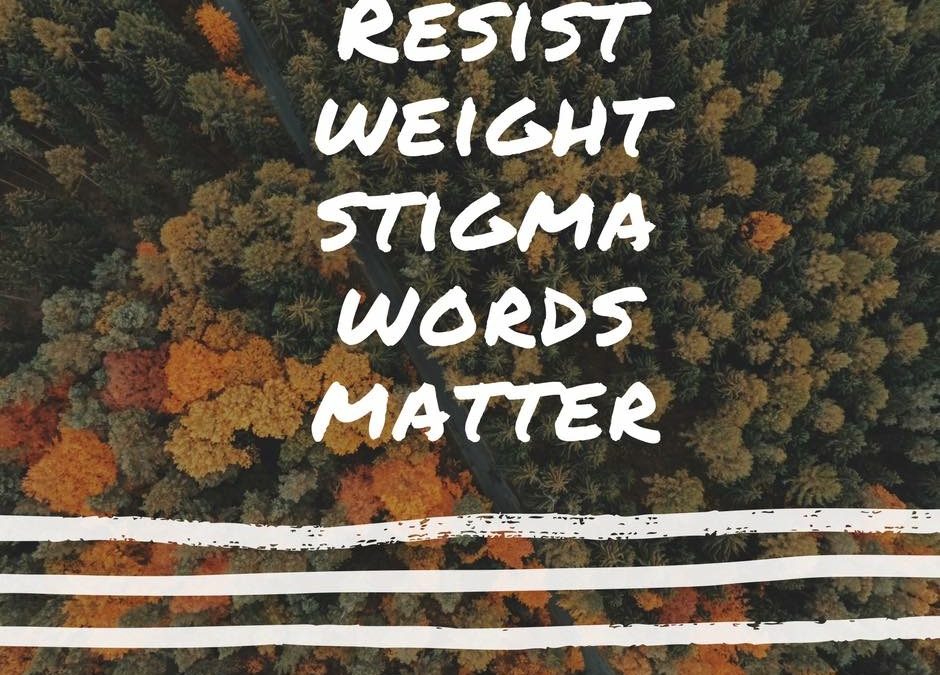How to check for signs and what to do about it
Many of us have been taught to have weight stigma. To judge, criticize and “fix” those that have more weight on them than what has been deemed to be “acceptable” by society. Maybe you fall into this category and have felt this judgement and this criticism by family, friends, co-workers and more than likely, someone from the medical profession.
As a dietitian, I was taught to help fix someone who is overweight. I was taught “if someone is overweight, then they are unhealthy.” They MUST have “x, y, and z” wrong with them. So I would develop weight loss meal plans and weigh them weekly to “track their progress.” I would pat them on the back and celebrate when there was weight loss. Just as I would thoroughly examine what went “wrong” with their diet if they had gained weight. I would set a plan for that next week to make sure they could stay on track. Writing, counting and measuring their food to make sure they got it right. Psychologist and Health at Every Size expert, Deb Burgard, PhD, put it perfectly, when she said, “We prescribe for people in larger bodies what we would call disordered in smaller bodies.” How true these words are. When I see someone with an eating disorder, these are often the behaviors with food that I am helping them to undo. How is it right that I would promote those same behaviors that fuels a disordered war with body and food to someone just because they are of higher weight? Think about it. Think about how we are taught to view this. If someone is trying to lose weight because they are of higher weight and they are tracking their calories, writing down every morsel of food that goes into their mouth, weighing and measuring their food, avoiding social situations because they can’t follow their eating plan, we applaud them. But guess what? THAT is disordered eating!!
It is time we start to look at what is really being promoted. When I am working with someone with an eating disorder, I am helping them to trust their bodies again. Trust that they can have balance with foods that make their bodies feel good and energized along with the foods that they fear. They can trust that their bodies will maintain the weight that it is meant to be at, as they listen to their hunger and fullness cues. No one should be told that they cannot have these things because they are of a higher weight, and this is exactly what our society implies.
With weight stigma, we are under the belief that we should all fall into a certain weight spectrum. A one size fits all approach. Just look at the BMI standards and how easy it is to fall into the “overweight” or “obese” category. Getting placed into one of these is like being handed the scarlet letter. We live in a society where there are so many body shapes and sizes, yet we are taught that the only acceptable size is “thin.”
A new study out of Duke University found, “implicit weight bias in children ages 9-11 years old.” Weight stigma starts early because it is what our children are learning through their doctor, family, media and society. Weight stigma is an oppressive discrimination that is felt by so many. “Obesity has been called the last socially acceptable form of prejudice and persons with obesity are considered acceptable targets of stigma,” said Dr. Scott Kahan, director of the National Center for Weight and Wellness. When we view this in the eyes of prejudice we are met with a moral issue. The unjust treatment of a group of people because they do not fit into a socially acceptable size. The fight against weight stigma is a movement that is gaining more force. I ask you to reflect on how you view people of a higher weight. What words do you use? What judgements do you pass? What presumptions do you make? Change with weight stigma will only come with more acceptance and seeing people for who they are not what size they are. Will that be you?


